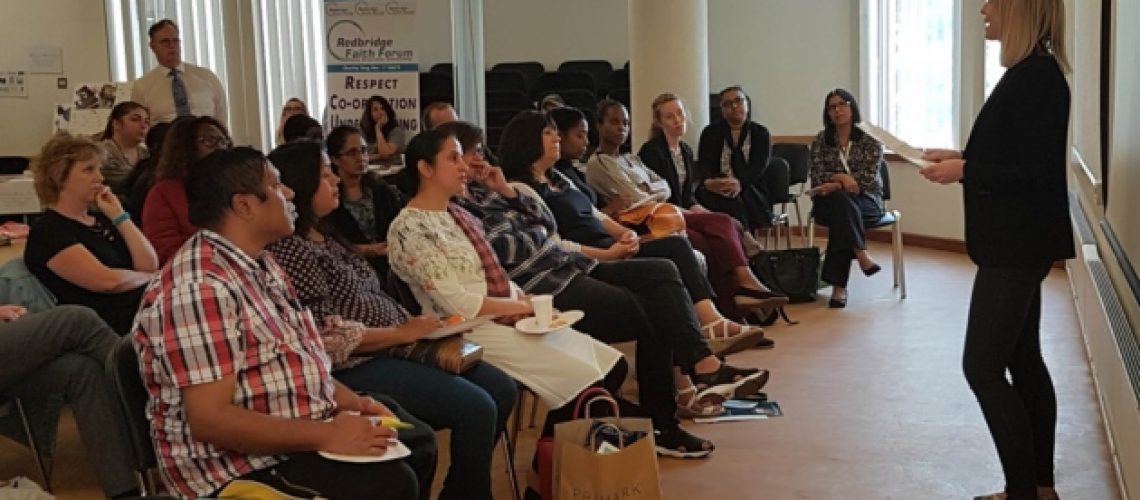Nina Mitchell is a psychotherapist at Cherry Tree Therapy Centre. On the 10th September 2018 she gave a talk for the Sky Sharma Foundation‘s mental health and suicide prevention day in Ilford, Essex . Here she talks about the day:
Mental health awareness is on the radar more than ever but we still have a long way to go in reducing stigma and raising awareness. ‘Mental health’ is often used to describe our mental state in a negative sense, but actually we all possess mental health – it describes our state of mind and as such can go up and down depending on what is happening in life. We are all capable of changes to our mental health so we have to get better at looking out for this in ourselves and others.
Between 2003-2013, 18,220 people with mental health problems took their own lives. Men make up 3/4 of this number. It was reported in 2017 that female suicide rates were at their highest in a decade in England. These numbers are probably even higher for many reasons.
Those who die by suicide often do not want to – they just want to stop hurting. Therefore its crucial that the stigma of not talking (particularly for men) about our pain and anguish is reduced; suicide is a desperate attempt to escape suffering that has become unbearable.
How can we connect with and recognise suicide?
- Recognise the warning signs and take them seriously!
Physical changes: ie, Problems sleeping, weight and appetite changes
In the Actions we see ie, giving away possessions, withdrawal from the world, self-harm
In the Words used ie, Self-deprecating, hopelessness, there’s no point, you’ll be better off without me, there’s no future for me, I can’t go on
And in Feelings – desperation, anger, guilt, feeling worthless
A common myth around suicide is that those who intend to carry it out, won’t talk about it! Don’t assume this!! If we feel that someone is showing signs of suicidal intent, then there are some steps we can take:
- ASK ABOUT SUICIDE! Be direct and clear – asking shows you care, even if you are incorrect. You can frame it as something ‘you know, a lot of people who feel depressed and overwhelmed think about suicide, is this something you have considered?’ Don’t be scared to use the word suicide, ask directly! Say it more than once if you need to, to show you’re comfortable with it. If they don’t answer, or you don’t necessarily believe the answer, carry on as if they have said yes.
Be calm and matter of fact. In most cases, people will often say they do not want to take their lives, they just want to escape the pain. But asking these questions will help to elicit whether suicide is in fact a serious option or not.
If a person does have suicidal intent, it’s important to check exactly what this means, do they have the means/opportunity? Have they tried before? Ask the questions…
- Do you need immediate help, contact your GP, a relative, call for an ambulance etc?
- Listen to the person’s story! Aim to find out what’s got them to this point.
- When listening to their story, we’re looking for a person’s reason to go on. There usually is one.
Reach out to other organisations such as:
GP
A&E
CALM (Campaign against living miserably)
But there are also some great training courses which will support you, in supporting others who are struggling with suicidal thought.
Suicide Prevention Training with ASIST
Mental Health First Aid training
And don’t forget to get support for yourself as depression impacts on more than the person going through it.
For further information on suicide prevention or to enquire about individual counselling with Nina Mitchell please fill in the contact form below:

